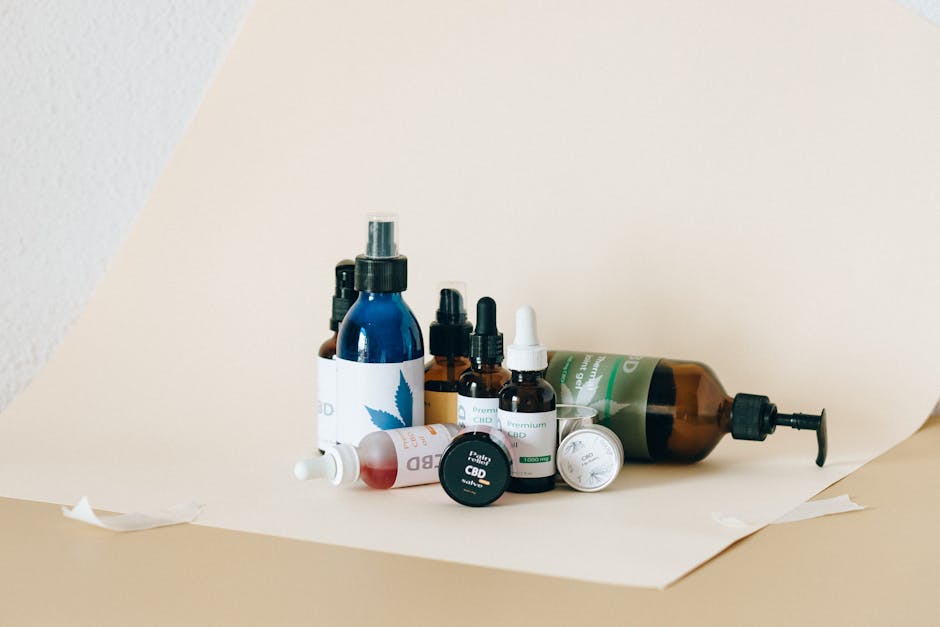Transform Your Mental Health: The Power of Micro-Moments
In a fast-paced world brimming with responsibilities and distractions, finding time for self-care can feel almost impossible. However, what if I told you that small, intentional acts of self-care—what we call "micro-moments"—can lead to significant improvements in your mental health and overall well-being? That's right; these tiny intervals of self-care, whether it's a few minutes of mindful breathing, a brisk walk, or jotting down what you are grateful for, can transform your mental health in ways you may not expect. Let’s dive into how these brief moments can bring about real, lasting change.
Understanding Micro-Moments: What Are They?

Micro-moments are not just buzzwords; they represent a concept grounded in simplicity and effectiveness. Defined as brief and intentional moments that promote self-care, these acts often take no more than a few minutes. Think of them as small doses of wellness that you can incorporate into your daily routine—whether during a lunch break, while waiting to pick up your kids, or even before going to bed. Unlike larger self-care practices that require significant time and energy, micro-moments are designed to be easily attainable, opening the door for everyone to engage in self-care, no matter how busy life gets.
Research has shown that consistent participation in self-care—even in small doses—can greatly benefit mental health. One study from the American Psychological Association suggests that these small acts can accumulate to alleviate stress, reduce anxiety, and even boost mood. The beauty of micro-moments lies in their accessibility; they allow for self-care to be woven seamlessly into the fabric of your daily life.
The Science Behind Micro-Moments

It’s one thing to talk about the effectiveness of micro-moments, but what does the research say? The science backing small acts of self-care is often rooted in psychological theories and studies.
1. The Broaden-and-Build Theory

Originating from the research of psychologist Barbara Fredrickson, the Broaden-and-Build Theory posits that positive emotions can broaden one’s perspective and build resources for future challenges. When you engage in micro-moments, even if it’s just a few moments of deep breathing or a quick stretch, you cultivate these positive emotions, which can accumulate and improve your resilience over time.
2. Neuroplasticity

Our brains are more adaptable than we think. Neuroplasticity—the brain's ability to reorganize itself—means that through repetition of positive behaviors, such as engaging in self-care moments, you can rewire your brain for better mental health. This phenomenon highlights how regular micro-moments may foster healthier thought patterns, making it easier for you to handle stressors in life effectively.
3. Mindfulness and Well-Being

According to a study published in the journal Psychological Science, engaging in short mindfulness practices significantly decreased stress among participants. Just a few minutes of mindful breathing or grounding exercises can draw your focus back to the present, allowing you to step outside of the whirlwind of thoughts and worries that can fuel anxiety.
Tips for Incorporating Micro-Moments into Your Day

Creating opportunities for micro-moments doesn't require a complete overhaul of your daily routine. Here are some practical tips for incorporating these moments into your life seamlessly:
1. Breathe Mindfully

Take a moment to practice deep breathing. Inhale deeply for a count of four, hold for four, and exhale slowly for another count of four. This quick breathing exercise can help calm your mind and reduce anxiety.
2. Take a Short Walk

Whether it's around your office or around the block, a quick walk can refresh your mind and recharge your energy. Aim for a five-minute walk every couple of hours to clear your head and reset your focus.
3. Practice Gratitude

Spend a minute or two writing down three things you're grateful for. This simple practice can shift your mindset from what's stressing you out to acknowledging the positives in your life.
4. Disconnect from Technology

Set aside just a few minutes away from your screens. Use this time to connect with your surroundings—notice the sounds around you or the feel of the breeze on your skin. This ‘unplugged’ moment is a great way to recharge mentally.
5. Stretch it Out

Stand up and stretch your body. A few minutes here and there can relieve physical tension and rejuvenate your mind. Yoga poses can be particularly beneficial if you have more time, but even simple neck and shoulder rolls can work wonders.
Real-Life Success Stories

Let's take a look at how these micro-moments made a difference in people's lives.
Emily's Experience with Mindful Moments

Emily, a busy marketing executive, struggled with overwhelming anxiety related to work pressures. After reading about micro-moments, she decided to integrate deep breathing exercises into her hectic schedule. During her 15-minute breaks, she would close her eyes and focus solely on her breath. Over a few weeks, Emily noticed not only lower stress levels but also increased concentration and productivity. When the deadlines would roll in, Emily felt more equipped to tackle them head-on.
Mark's Transformation through Walking

Mark, a software developer, spent most of his day hunched over his computer, leading to significant neck pain and frustration. He introduced short walks into his routine, making use of just five minutes every hour to step outside. Besides alleviating his physical discomfort, Mark found that these small walking breaks helped elevate his mood. He described his surprise at how a five-minute walk could change his entire workday.
External Resources to Explore
For further reading on micro-moments and their profound impact on mental health, consider checking out these respected resources:
- Insights from Harvard Business Review on Mindfulness
- Research by the American Psychological Association
Creating Sustainable Micro-Moments
Achieving mental clarity and emotional resilience in today's world requires innovative approaches. Micro-moments can create sustainable self-care practices by being adaptable and easy to implement. Luckily, you don’t need extensive time or resources to cultivate these moments.
Developing a Micro-Moment Mindset
When it comes to fostering an ongoing practice of micro-moments, consistency is key. Here’s how to keep the momentum going:
-
Set Reminders: Use your phone or sticky notes in places you see often to remind you to take micro-moments throughout your day.
-
Share Your Journey: Share your experiences with friends or family. This not only holds you accountable, but it can also inspire others to embrace similar practices.
-
Keep it Flexible: Understand that not every day will allow for the same practices. Adapt and mix up your micro-moments based on your current situation to keep them engaging and relevant.
Next Steps: Be Your Own Wellness Advocate
Taking the first steps toward incorporating micro-moments into your routine can feel daunting, but it doesn’t have to be. Start with just one new practice today, and recognize it as an act of self-care. Be patient with yourself, as small changes lead to bigger results over time. Your journey to better mental health can begin with just a single breath.
In this fast-paced world, it's essential to recognize that even the tiniest moments of self-care add up, contributing greatly to our mental wellness. Make these micro-moments a priority in your life, and watch as they start to transform your mental health for the better.



